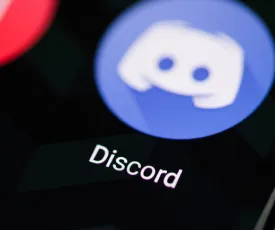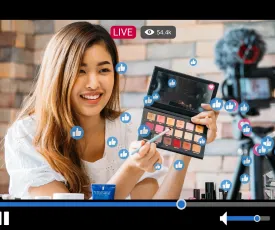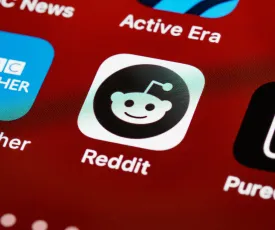Resources for Parents: Social Media Guides, How-to Guides, and Mental Health Resources for Teens
The Social Media Victims Law Center provides social media resources to help parents understand social media platforms. Additional parent guides help parents recognize warning signs of mental health conditions affecting their children.
If your child is experiencing mental health issues from social media use, your family is not alone. As of January 2024, 482 social media harm lawsuits have been filed in California alone.

Parent's Guides to Social Media Platforms
As the saying goes, knowledge is power. The typical U.S. social media user has seven social media accounts, so learning about social media platforms can be overwhelming. These resources provide information about how a platform works, the dangers associated with the platform, and how to enable safety and security features.


Parent's Guide to Instagram
Instagram, a popular image- and video-sharing platform used by 72 percent of teens, features public and private sharing via posts, live streams, and direct messages. Unfortunately, cyberbullies and sexual predators use Instagram to target children.
Safety measures can help protect your child from these and other dangers associated with Instagram use and exposure to content that glorifies eating disorders, self-harm behavior, and other mental health conditions. Read A Parent’s Guide to Instagram for information on how to help protect your child.


Parent’s Guide to TikTok
Almost 70 percent of U.S. teens and half of the U.S. population use TikTok, a fast-growing video-sharing platform.
Besides social media addiction, TikTok users risk exposure to cyberbullies and sexual predators. Users can access harmful content, including videos depicting self-harm and suicide. TikTok users can challenge others to TikTok Challenges that, while sometimes innocuous, can be dangerous and even deadly.
A Parent’s Guide to TikTok lists additional dangers, including financial scams and access to personal data, and includes parental control options you can use to help protect children using TikTok.

Parent's Guide to Snapchat
This messaging app, used by 30 percent of U.S. teens daily, is unique in that photos, videos, and live chats are deleted once viewed by all recipients.
Users may engage in risky behavior under the false belief that there will be no record of shared content. However, users can save or screenshot content. Snapchat’s Snap Map feature publically shares the user’s current location, risking physical contact with sexual predators and child traffickers. Users also can access pornography and other inappropriate content.
Our parent’s guide to Snapchat, Is Snapchat Safe for Kids?, includes measures parents can take to keep their children safe on Snapchat, including how to enable privacy settings.


Parent's Guide to Discord
While only three percent of U.S. teens consider Discord their favorite social media platform, it gained over 100 million registered users from 2022 to 2023. Discord users chat via text, voice, and video as part of invitation-only communities on private group servers. Communities typically focus on a specific topic, such as a video game or television series.
With no public posting features and no access to communities without a specific link, users feel a false sense of security. However, if the link is shared, possibly on another social media platform, anyone, including sexual predators, can post or send direct messages.
Read A Parent’s Guide to Discord to better understand how to protect your child, such as enabling explicit scan settings.


Parent's Guide to Live Streaming
Users of various social media platforms view and share uncensored, live video content via livestream. Live streamed content may feature a user playing video games or sharing commentary while watching a movie.
However, users also livestream offensive, violent, and sexually explicit material. Providing personal financial information to livestream content creators as a way to give a tip or gift exposes users to fraud. A child who shares content via livestream risks engaging cyberbullies and may regret impulsive behavior. They also could inadvertently share personal information with sexual predators.
Live Streaming: A Parent’s Guide contains helpful ways parents can protect their children, including enabling protection settings.


Parent's Guide to Reddit
Reddit users join topic-specific communities, called subreddits, on this news aggregator platform. Communities are started and moderated by Reddit users who vary in how active they are and what they deem appropriate. Other than policies against harassment and posting sexually explicit photos without consent, Reddit has limited rules, and users over 18 can access pornography.
Reddit has been associated with sexual violence, including child pornography, deepfake porn, and spycams. Users risk engaging with cyberbullies and sexual predators. This potentially addictive platform also contains disturbing content that can cause mental health issues such as self-harm, suicidal ideation, and depression.
Reddit does not offer any parental controls. To learn how to protect your child—including how to use Reddit’s content-blocking feature—read How to Use Reddit: A Parent’s Guide.


Parent's Guide to Telegram
Telegram, an adult texting app, features automatic deletion of messages once viewed by the recipient, encryption that prevents third-party access to content, group messaging, and games. While Telegram carries the “mature” rating on Google Play and is listed as intended for ages 17 and up on iPhone’s App Store, 7.7 percent of Telegram users are under 18.
Telegram’s end-to-end encryption prevents any third party, including parents, law enforcement, and Telegram itself, from accessing messages, making it easy for sexual predators and illegal drug sellers to evade monitoring and investigation. The app’s People Nearby setting can alert sexual predators to your child’s location. By setting up fake accounts, users can easily fool your child into believing they’re interacting with someone they know.
Read A Parent’s Guide to Telegram to learn more about Telegram, including news about sexual predators charged with using Telegram to harm children.
Prevention Guides

How To Identify Suicide Risks
Social media use can lead to depression, self-harm, and suicidal ideation. Some social media users share content that glamourizes, encourages, and depicts suicidal acts. Sadly, suicide is the second most common cause of death for 10- to 24-year-olds.
Our guide, How to Identify Suicide Risks: A Prevention Guide for Parents, can help you recognize early warning signs, talk to your children about suicide, and identify ways to get help.
How To Identify Sexual Abuse
Children who use social media have an increased risk of exposure to sexual predators who use social media to share sexually explicit content, manipulate children into sharing sexually explicit images of themselves, and communicate inappropriately with children. Bad actors can trick children into sharing personal information or meeting with them offline, which can lead to sexual abuse and child trafficking.
Learn about the warning signs of sexual abuse, ways to protect your children, and resources for helping children dealing with sexual abuse in How to Identify Sexual Abuse: A Prevention Guide for Parents.
How To Identify Eating Disorders
Despite the prevalence of eating disorders in the United States, a recent study showed that only 20 percent of teens with eating disorders seek help. Social media users post content romanticizing eating disorders and share tips that worsen the disease. When using social media, teens view photos of people with edited, unattainable body shapes, which contributes to body image issues.
Read our How to Identify Eating Disorders: A Prevention Guide for Parents to learn about eating disorder warning signs, such as binge eating and rapid weight loss, and resources to help children with this issue.
How To Identify Social Media Addiction
Social media use can be a positive, engaging activity for children, allowing them to communicate with friends and learn about new topics. However, without careful monitoring, appropriate social media use can quickly spiral into a harmful social media addiction. If you notice declining grades, withdrawal from activities, or other warning signs, your child may be experiencing social media addiction.
Learn more about the dangers of social media addiction, warning signs, and helpful resources in How to Identify Social Media Addiction and Problematic Use: A Parent Guide.
Social Media Addiction Questionnaire
If your child is exhibiting social media addiction warning signs, take action. Our Social Media Addiction Questionnaire, based on the Bergen Social Media Addiction Scale used by the psychology community to assess social media addiction, can help you determine if your child needs help.
If you believe your child may be addicted to social media, first get in touch with a local mental health professional. Then, contact our attorneys at the Social Media Victims Law Center for a free case evaluation.
Text Slang and Emoji Dictionary
Unless you are engrossed in the social media world, keeping up with each platform’s frequently changing slang can be challenging.
Our Text Slang and Emoji Dictionary can help you decipher social media messages, content, and posts to monitor social media activity effectively. If you know the meaning of words commonly used on social media, such as “trolling,” “doxxing,” and “fraping,” you can more easily assess risk and identify issues that might indicate mental health struggles.



Other Online Mental Health Resources, Programs, and Support Groups
The following resources contain helpful information for families managing mental health issues.
Mental Health America
This nonprofit organization promotes mental health and well-being. It contains information about mental health conditions, crisis resources, treatment options, and provider connections.
The Annie E. Casey Foundation
This foundation provides information about early treatment for depression for Latino and African American adolescents.
National Children's Advocacy Center
Visit this child abuse response and prevention advocacy group's website for resources for parents dealing with children impacted by trauma, sexual exploitation, social media addiction, and other issues.
National Institute of Mental Health
To learn more about child and adolescent mental health, including warning signs of different mental health conditions and how to help children cope with trauma, visit this federal mental health research organization's resources page.
MentalHealth.gov
The Substance Abuse and Mental Health Services Administration website provides information about warning signs, tips for talking about mental health, and ways to get help.
Who Should You Contact When You Need Support
Discovering that your child has a mental health issue can be overwhelming and alarming. Because mental health conditions can be severe and even life-threatening, seeking prompt help is essential. Fortunately, you are not alone.
Besides our social media mental health resources, there are many people you can lean on for help and support. Along with mental health professionals, consider reaching out to:
- Your doctor or pediatrician
- Your child’s guidance counselor or school psychologist
- Your child’s teacher, coach, or mentor
- Your faith leader
- A trusted family member or friend
Legal Support From a Social Media Addiction Lawyer
To help your child cope with social media addiction and any other mental health issues, contact a mental health professional. In addition to providing social media mental health resources for parents, the Social Media Victims Law Center works to hold social media companies legally responsible for harm inflicted on children.
If your child or teen is suffering from mental health issues from social media use, we can help you. Contact us today for a free, confidential case evaluation or more information.

